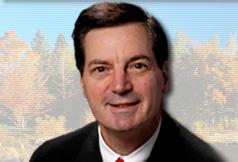Every act is an example to someone
Too often we hear public figures that include athletes, Hollywood types and others discourage people from thinking of them as examples. Usually it stems from the individual wanting to behave in any manner he or she desires without having anyone question his or her influence on others.
In a perfect world, this might be possible. But in case you had any doubts, we don’t live in a perfect world.
It doesn’t matter who we are, where we live, how old we are, or whom we associate with, someone will use our behavior for an example. If I had recognized how undeniable that truth is earlier in my life, maybe I would have modified my behavior in a way to have made fewer mistakes that embarrass me to remember today.
The first time I learned that my daughter, Elizabeth, used my behavior, as an example was when she learned to eat popcorn. She was less than 2 years old, and Laura exposed her to the delicious treat.
I came home from work and they both were eating one piece at a time. I reached into the bowl and removed a handful of white kernels and put the whole prize into my mouth. Laura shrieked with dismay. I dismissed her concern and left the room for a few minutes. Upon my return, I was startled to discover that Elizabeth was now grabbing a fistful of popcorn at a time and trying to eat it all at once. Needless to say, I learned a lesson about my example from something that I believed uneventful. It took Laura some time to retrain Elizabeth on the ladylike method of eating popcorn.
In today’s environment, it is virtually impossible to do anything without someone discovering it. Between camera phones, the Internet, media searches for information and eyewitness reports, everything we do is subject to review.
I find it laughable that the Las Vegas tourist bureau runs advertising under a theme of, “What happens in Vegas, stays in Vegas.” What a joke!
In business, people do things without thought to the example they are providing or the impact they may have on people other than those their actions have been directed toward. In September 2006, Radio Shack laid off 400 employees, in restructuring their business. Their action made news because they communicated the pink slips by e-mail rather than in person to those they separated them from the company. Do you think any of those released will speak positively of the company or continue to be customers?
While their act was impersonal to the individuals directly affected, I was astonished because they obviously didn’t think about the impact on those remaining employees. Did they think that their decision was made in a vacuum? Do they think the people who survived the layoff will be happy, or even more anxious about when and how they may be let go? Will the company have any credibility with its employees when they communicate about the state of their business?
At a time when Radio Shack needs everyone to contribute their best effort and demonstrate the highest team spirit, management revealed an extreme case of cost control over people. Management will state that their action reduced expenses by a certain amount, but they may never know how much it cost them in the future because of their insensitive action. I contend that the short-term expense of conducting the layoff in a more human way would be far less than the long-term cost of their decision.
Science teaches us that every action causes a reaction. Sometimes a precedent is established, and an unintended consequence is realized. The more often we realize that our actions are examples and contemplate their effect, the better we will perform and the more positive impact we will have on others.
© 2006 Richard V. Battle

0 Comments:
Post a Comment
<< Home